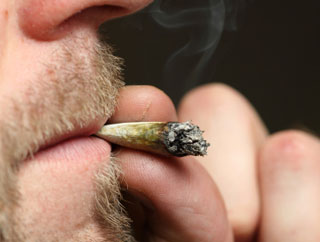
What Does Impairment Really Mean?
Driving under the influence is the crime of driving a motor vehicle while impaired by alcohol or other drugs, including those prescribed by physicians. While most people, including those in the general scientific and law enforcement communities, can agree on what constitutes impairment when someone is under the influence of alcohol, the same cannot be said about determining sobriety or impairment while under the influence of marijuana or other drugs.
Drugged Driving Posing Problems for Officials
Law enforcement officials are trying to figure out how to apply existing DUI laws to drivers who are under the influence of marijuana or other drugs that may metabolize and appear in the bloodstream. One issue that stems from this dilemma is the imprecise approach some states use when implementing “drugged driving” laws. This approach may be creating an environment that could potentially be abused by law enforcement with the possibility of little to no benefit to public safety. A report published in 2013 by the Humboldt Journal of Science Relations states NORML Deputy Director Paul Armentano was worried about enforcement of “per se” drugged driving laws. He claimed that trying to enforce laws under which drivers can be potentially convicted of a traffic safety violation for operating a motor vehicle with even the slightest trace amounts of metabolites or THC found within their bodily fluids, “may inadvertently become a criminal mechanism for law enforcement and prosecutors to punish those who have engaged in legally protected behavior and who have not posed any actionable traffic safety threat.” Eighteen states, including Arizona, have such laws in effect. This means that a driver could be subject to additional criminal charges if they test positive for a pre-determined amount of THC or its metabolites after being arrested for suspicion of DUI. Armentano also states that the correlation between identification of either THC or its metabolites in a person’s bodily fluids and behavioral impairment is far from established. Jonathan Adkins, executive director of the Governors Highway Safety Administration, said that while the organization supports the per se laws, he could not say that the laws unequivocally prevent traffic fatalities. Adkins also added, “Different people react very differently to marijuana. And that’s part of the controversy. Right now it’s more about what we don’t know than what we do. We’re having trouble keeping up with all changes to the legislation.”
Defense Against Drugged Driving
This past September, the Arizona Supreme Court held that drivers in the state could not be convicted “based merely on the presence of a non-impairing metabolite that may reflect the prior usage of marijuana.” Even though Arizona is a zero tolerance state, there is now precedence for per se drug laws. There are also limits to the things a police officer can require you to do when you are stopped for a driving error or at a DUI check point. With the help of the experienced DUI attorneys at The Oswalt Law Group in Phoenix, you may be able to reach a positive conclusion to a charge of driving under the influence of drugs or alcohol. Contact the Oswalt Law Group today for more information on protecting your rights after a DUI arrest.
